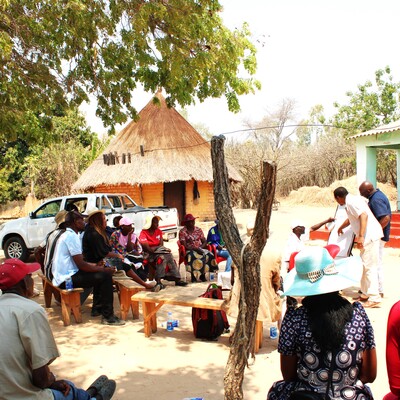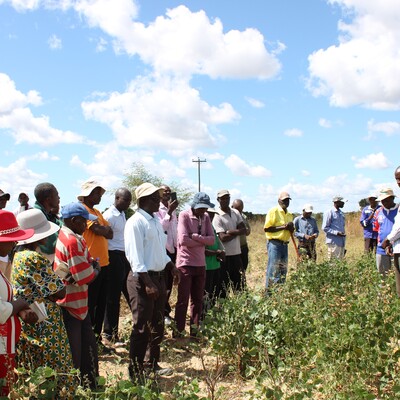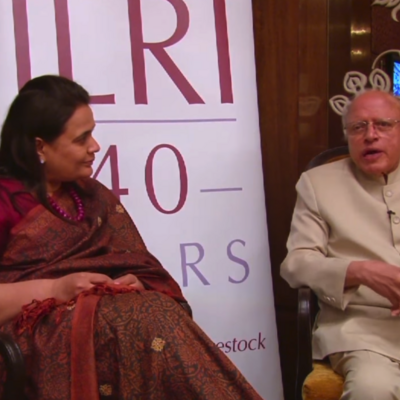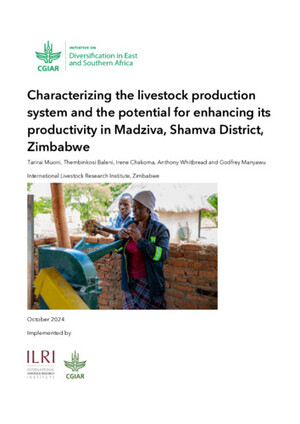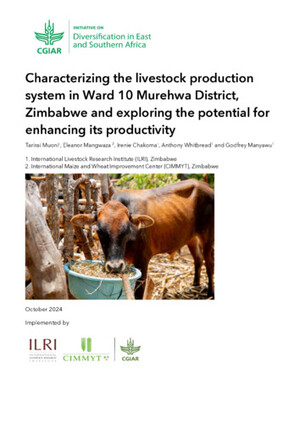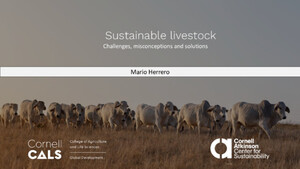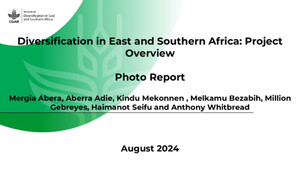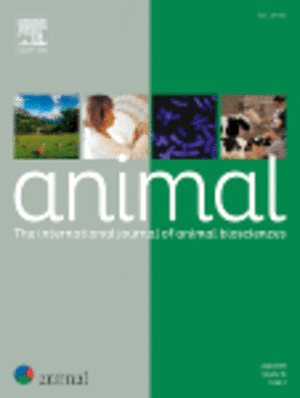
Livestock for food and nutrition security in Malawi
On 16 October 2021, a policy dialogue event, titled ‘Livestock for food and nutrition security in Malawi: Policy gaps, needs and opportunities’, was held to discuss the current policy challenges facing Malawi’s livestock sector. The event was informed by the joint ICRISAT-ILRI Crop Livestock Integration and Marketing in Malawi (CLIM²) project which seeks to improve crop-livestock diversification and contribute to the more efficient use of scarce farm resources.
Malawi remains one of the poorest and most malnourished countries in the world. Like the rest of Africa, it also has a growing population that will further increase pressure on its food production systems. Meeting this growing food demand through heightened production on smallholder farms could help address food insecurity and reduce rural poverty. However, there is growing concern that Malawi’s smallholder farmers are not equipped to meet increased demand, largely due to the underutilization of Malawi’s livestock sector—a result of low rates of farm diversification and restrictive policy frameworks that limit smallholders’ access to markets and extension services.
The CLIM² project has been involved in a variety of efforts to address the policy gaps limiting income and food production on Malawi’s smallholder farms. The project supported the Government of Malawi in producing a fast-growing chicken breed that produces larger eggs, invested in high-quality infrastructure along the goat value chain and improved local communities’ knowledge of animal health and welfare. These efforts have helped smallholder farmers enhance the quality of their livestock products and gain greater access to markets.
CLIM² has also identified policy gaps in the livestock sector that should be addressed moving forward. One major gap highlighted at the policy dialogue event by Sikhalazo Dube, ILRI’s project coordinator, is the limited availability of capital to finance small and medium enterprises (SMEs). The project is working to address this issue by initiating starter kits to support the financial needs of SMEs. ‘Starter kits can be vital to nurturing passion and are critically important for agri-business’, said Dube.
Other policy concerns brought up at the event include the low rate of employment in Malawi’s livestock sector, poor road networks that limit farmers’ access to infrastructure and markets, and stringent regulatory frameworks that prevent smallholder farmers from participating in Malawi’s export market.
In response to these remaining challenges, Dube said that ‘the lessons from the meeting will inform us going forward in business coaching and capacity building of the SMEs’. Similarly, Patrick Chikungwa, director of Malawi’s Department of Livestock and Animal Health, expressed that the government would package the lessons from the event to improve livestock policy and address the remaining challenges facing Malawi’s smallholder farmers.
To learn more, you can view a policy brief resulting from the consultations and learnings of the CLIM² project here.
Dairy cow in central Malawi (photo credit: ILRI/Stevie Mann)






